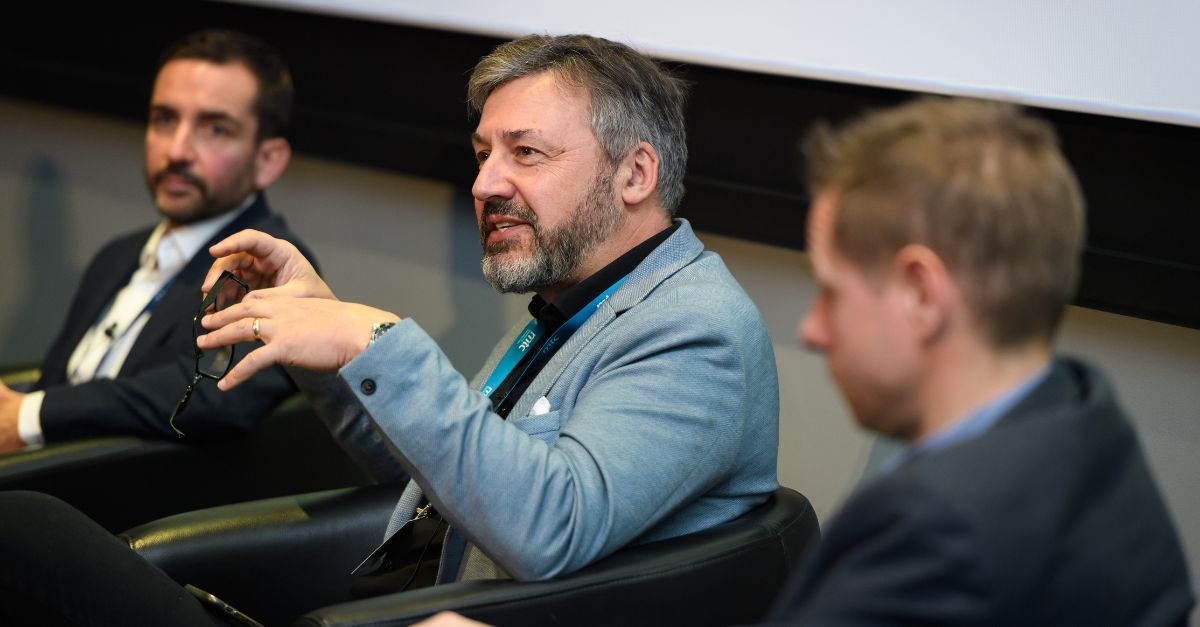The automotive aftermarket is facing a trying time as repair inflation and the cost of living start to bite, but winners and losers are starting to emerge.
Speaking during a ‘State of the Nation’ address at ARC360’s Gaining Ground Together event, which was held at The Manufacturing Technology Centre on Thursday, 24 November, Paul Sell, Director at Trend Tracker, revealed the extent of the economic downturn and how it is impacting both consumers and industry.
He said that living standards are facing their biggest drop since the end of the Second World War, but worse is yet to come with an economic revival not expected to materialise for another two or three years.
Increasing mortgage rates and food prices are forcing consumers to think about how they spend their money, but far and away the most substantial knock to households is escalating energy prices. Paul predicted that a combination of all three will lead to a seven per cent drop in disposable income over the next two years, and this view was supported by a You Gov poll that found 82% of people plan to tighten their belts.
Employers
For employers, the prognosis is equally challenging with energy prices joined by wage inflation as the critical factors. Unemployment levels are actually low, but there are now half a million more people on long-term sick leave than pre-pandemic, meaning the cost of attracting and retaining skilled staff has increased dramatically.
For the automotive aftermarket, there are also a raft of industry-specific challenges to cope with, not least around the global microchip shortage and disruption to the supply chain.
Paul revealed that car production in September was a staggering 47% down on the same month in 2019, meaning the value of used cars remains at a record high, while one in five repair jobs is still being held up by a lack of spare parts. Here too the situation is likely to get worse before it gets better; Paul said that lead times have been static at 55 days for most of the year, but have extended to 59 day in the last few months as demand increases at the onset of winter.
Arguably the most urgent consideration though is repair cost inflation, which is tracking at about 18% year on year but expected to increase ‘significantly’ in the near future.
“We’re not at the end of this cost inflation,” Paul said. “There is more to come and it’s a difficult time for many. But there are definitely some winners and losers as the market evolves. Partly that’s because the increases in repair costs and the steady demand have meant the market value has gone up. That has made the sector attractive to investors and it is attracting investment, with a number of acquisitions taking place.”
Panel
Paul was then joined on stage by Chris Weeks, Executive Director, NBRA; and Nick Sweetman, Head of Vehicle Repair and Service Operations, UK & Ireland, Enterprise, who shared their own insights from the front line of the industry.
Chris broadly agreed with Paul’s assessment, suggesting the myriad challenges – repair inflation, wage inflation, mobility costs – are unlike anything seen before.
He said, “I’ve never seen a time when so many things were hitting a single industry sector at the same moment.”
He suggested that the need for collaboration and communication was as great now as it was during the pandemic, but feared work providers are reverting to type as a result of the pressures they themselves are feeling.
Chris said, “I think we’re taking a backwards step. It’s no one’s fault, but when you are facing your own challenges then it’s inevitable that more and more control starts to creep back in – greater engineering, greater intrusion, more testing, more checking. We’re going in the wrong direction again and instead of talking more and saying this is a collective problem so how can we work together, we’re moving back towards an adversarial phase.”
Electric vehicles
One area where working in partnership and understanding each other’s priorities will be critical is in the continued electrification of the market, although uptake has slowed slightly due to rising energy costs.
“It is putting people off,” Paul explained. “Running costs are now about the same as for a petrol or diesel car, so why would you make the switch?”
But despite that, plug-in vehicles continue to make up a greater share of the overall car parc every month and knowing when to invest, and to what degree, is not straightforward for bodyshops.
Nick said, “Repairers aren’t in an easy position in terms of knowing what EV skills they need. We’ve got a young fleet so we have more EVs than most, but even we don’t want a stampede of repairers pushing on to Level 4. That would give them the skills to repair a battery set, but we feel when it gets to that level of damage the vehicle will likely be a total loss anyway. Everyone has to get to Level 2, but at the moment we don’t feel like repairers will get a return on investment getting to Level 4. But this brings it back to collaboration, because it’s not solely the repairer’s responsibility. We can help our network.”
Change
EVs are certainly one disrupting factor, as are connected vehicles, which Nick thinks will reduce claims severity but not repair complexity. But perhaps the most significant market change will come from something as yet unimagined.
Chris concluded, “We’re due an epoch event, something big that will change the industry entirely. It’s normally out of difficult times where innovation is at its peak, and we’re in a pressure pot at the moment. Everyone is struggling. So I just feel like someone is going to introduce something brand new. It’s going to do incredibly well and everyone is going to jump on top of it.
“I think this is a positive thing. We’ve been working the same way for a long time. Other markets work completely different to ours, so have we got it completely right? I don’t think we have. Something will change, and I think it will be around who owns the consumer.”
ARC360’s Gaining Ground Together 2022 event was sponsored by GT Motive and OSCA, and supported by ARC360 Corporate Partners: Solera Audatex; BASF; BMS; CAPS; Copart; EMACS; Entegral; Enterprise; Innovation Group; Mirka; Nationwide Vehicle Recovery Assistance; and S&G; along with Partners: Repairify; Indasa; and Prasco UK; and Associate Partners: Gemini ARC; Trend Tracker; and Thatcham Research.
















